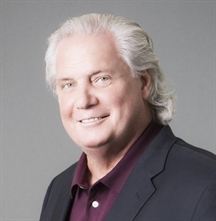Staff
Mickey Hsiao
Alumni
Phillip Hendrickson (now @ Northrop Grumman), Brian S. Robinson (now @ KERNEL), Sushmita L. Allam (now @ IBM), Viviane Ghaderi (now @ BMW)
 Dr. Theodore W. Berger is the David Packard Professor of Engineering, Professor of Biomedical Engineering and Neuroscience, and Director of the Center for Neural Engineering at the University of Southern California. Dr. Berger’s research uses an integrated experimental and theoretical approach to focus on biologically realistic nonlinear dynamic models of the nervous system. Electrophysiological studies of in vitro brain slices and brain activity of in vivo behaving animals have used single-cell intracellular current- and voltage-clamp methods, and multi-cellular extracellular field measurements in animal (rat, rabbit, cat, monkey) and human hippocampus. The goals have been to study the functional properties of hippocampal neurons and circuits, using a combination of methods and techniques from the fields of neuroscience, engineering, and computer science. This multi-disciplinary, multi-laboratory strategy has made it possible to approach and indeed, achieve goals never before reached, including: 1) large-scale, biologically realistic modeling of multi-million neuron systems connected through multi-billions of network connections; 2) biomimetic models and devices that bi-directionally communicate with the brain in real-time to restore lost cognitive function such as the formation of long-term memory; 3) multi-scale, hierarchical models of the nervous system that will allow molecular events to be related to cellular properties, then to multi-cellular properties, and ultimately to the system dynamics underlying cognition, language, memory, and learning.
Dr. Theodore W. Berger is the David Packard Professor of Engineering, Professor of Biomedical Engineering and Neuroscience, and Director of the Center for Neural Engineering at the University of Southern California. Dr. Berger’s research uses an integrated experimental and theoretical approach to focus on biologically realistic nonlinear dynamic models of the nervous system. Electrophysiological studies of in vitro brain slices and brain activity of in vivo behaving animals have used single-cell intracellular current- and voltage-clamp methods, and multi-cellular extracellular field measurements in animal (rat, rabbit, cat, monkey) and human hippocampus. The goals have been to study the functional properties of hippocampal neurons and circuits, using a combination of methods and techniques from the fields of neuroscience, engineering, and computer science. This multi-disciplinary, multi-laboratory strategy has made it possible to approach and indeed, achieve goals never before reached, including: 1) large-scale, biologically realistic modeling of multi-million neuron systems connected through multi-billions of network connections; 2) biomimetic models and devices that bi-directionally communicate with the brain in real-time to restore lost cognitive function such as the formation of long-term memory; 3) multi-scale, hierarchical models of the nervous system that will allow molecular events to be related to cellular properties, then to multi-cellular properties, and ultimately to the system dynamics underlying cognition, language, memory, and learning.
Dr. Berger collaborates with other laboratories to obtain ensemble, single unit recordings from behaving, non-human primates and from humans (Dr. Sam Deadwyler, Wake Forest University Medical Center; Dr. Greg Gerhardt, University of Kentucky Medical School), to develop novel, input-output modeling methodologies (Dr. Vasilis Marmarelis, Dr. Dong Song, University of Southern California), to explore multi-level modeling strategies (Dr. Gianluca Lazzi, University of Utah), and to instantiate biomimetic models in FPGA (Dr. Ray C.C. Cheung, City University of Hong Kong) and VLSI (Dr. John Granacki, Information Sciences Institute, USC; Dr. John Choma, University of Southern California). Modeling research focuses on the development of (i) multi-input, multi-output nonlinear models, (ii) compartmental single synapse and large-scale multi-neuron models, and (iii) multi-scale, hierarchical models of neural systems. Preclinical and clinical applications of Dr. Berger’s research include the development of cognitive neural prostheses for restoring lost memory; clinical applications extend to medical devices and procedures for controlling seizures; industrial applications include biologically-based models underlying spatio-temporal pattern recognition.
Dr. Berger received his Ph.D. from Harvard University in 1976; his thesis work received the James McKeen Cattell Award from the New York Academy of Sciences. He conducted postdoctoral research at the University of California, Irvine from 1977-1978, and was an Alfred P. Sloan Foundation Fellow at The Salk Institute from 1978-1979. Dr. Berger joined the Departments of Neuroscience and Psychiatry at the University of Pittsburgh in 1979, being promoted through to Full Professor in 1987. During that time, he received a McKnight Foundation Scholar Award, twice received an NIMH Research Scientist Development Award, and was elected a Fellow of the American Association for the Advancement of Science (AAAS). Since 1992, he has been Professor of Biomedical Engineering and Neuroscience at the University of Southern California, and was appointed the David Packard Chair of Engineering in 2003. While at USC, Dr. Berger has received an NIMH Senior Scientist Award, was given the Lockheed Senior Research Award in 1997, and was elected a Fellow of the American Institute for Medical and Biological Engineering (AIMBE) in 1998. Dr. Berger also received a Person of the Year “Impact Award” from the AARP in 2004 for his work on neural prostheses, was a National Academy of Sciences International Scientist Lecturer in 2003, and an IEEE Distinguished Lecturer in 2004-2005. Dr. Berger was elected a Senior Member of the IEEE in 2005, received a “Great Minds, Great Ideas” award from the EE Times in the same year, and in 2006 was awarded the USC Associates Award for Creativity in Research and Scholarship. Dr. Berger was elected a Fellow of the IEEE in 2010, received the EMBS Academic Career Achievement Award in 2013, and his work was chosen as one of the “10 Breakthrough Technologies” of 2013 by the MIT Technology Review. Most recently, Dr. Berger was chosen as one of the “100 Global Thinkers of the Year” by Foreign Policy Magazine, and will be the recipient of the 2016 Medal from the Australian Society for Medical Research. He has published over 300 journal articles, conference proceedings, and book chapters, and is the co-editor of Toward Replacement Parts for the Brain: Implantable Biomimetic Electronics as Neural Prostheses published by the MIT Press in 2005, as well as the lead co-editor of Brain-Computer Interfaces published in 2008 by Springer. Dr. Berger’s research continues to be supported by DARPA, ONR, NSF, NIBIB and NINDS. Translation of some of Dr. Berger’s research has led to commercialization efforts through three start-up companies: Safety Dynamics, Inc., Rhenovia Pharma, Inc., and
Neuralgenix, LLC.
then there needs to be another key to reach:
Full Curriculum Vitae for Theodore W. Berger, Ph.D.
{which I will supply later}
Dong Song
 Dong Song is a research associate professor in the Department of Biomedical Engineering, University of Southern California. He received the B.S. degree in Biophysics from the University of Science and Technology of China in 1994, and the Ph.D. degree in biomedical engineering from the University of Southern California in 2003. His research interests include nonlinear systems analysis of the nervous system, cortical neural prosthesis, electrophysiological mechanisms of learning and memory formation, and development of novel modeling techniques incorporating both statistical and mechanistic modeling methods. Together with Drs. Marmarelis and Berger, he developed the multiple-input, multiple-output (MIMO) nonlinear dynamical model that serves as the computational basis of the hippocampal memory prosthesis. He has published over 50 peer-reviewed journal articles and book chapters. He is a member of the American Statistical Association, the Biomedical Engineering Society, the IEEE, and the Society for Neuroscience.
Dong Song is a research associate professor in the Department of Biomedical Engineering, University of Southern California. He received the B.S. degree in Biophysics from the University of Science and Technology of China in 1994, and the Ph.D. degree in biomedical engineering from the University of Southern California in 2003. His research interests include nonlinear systems analysis of the nervous system, cortical neural prosthesis, electrophysiological mechanisms of learning and memory formation, and development of novel modeling techniques incorporating both statistical and mechanistic modeling methods. Together with Drs. Marmarelis and Berger, he developed the multiple-input, multiple-output (MIMO) nonlinear dynamical model that serves as the computational basis of the hippocampal memory prosthesis. He has published over 50 peer-reviewed journal articles and book chapters. He is a member of the American Statistical Association, the Biomedical Engineering Society, the IEEE, and the Society for Neuroscience.
Jean-Marie C. Bouteiller
 Dr. Jean-Marie C. Bouteiller is Research Assistant Professor in the Center of Neural Engineering in the Department of Biomedical Engineering at the University of Southern California. Dr. Bouteiller obtained a Master’s Degree in Computer Science and Electrical Engineering at the University of Science of Montpellier, France. He worked in the German Aerospace Research Center as an engineer modeling the fly by wire flight control system of the A3xx (now known as the A380), before moving to the United States to join University of Southern California where he obtained his PhD in Computational Neuroscience. With this dual competency, he then joined the Department of Biomedical Engineering in 2002 as a Postdoctoral Fellow where he developed a computational platform to study the intimate mechanisms that drive the dynamics of neuronal synaptic connections in health and disease. This research effort led to the development of the EONS platform, the most detailed integrated synaptic model to date. To establish a quantitative and dynamic understanding of how mechanisms at different (temporal and spatial) levels independently and together shape function and dysfunctions in the nervous system, this research has since been broadened and led to the elaboration of a multiscale modeling framework. This framework incorporates mathematical models of complex subcellular biochemical pathways up to large scale neuronal network dynamics. Dr Bouteiller’s expertise comprises parallel processing and high performance computing, mathematical models development, parameters optimization and sensitivity analysis. He has published over 40 journal articles, conference proceedings, and book chapters. Since 2013, Dr. Bouteiller is Research Assistant Professor in the Center for Neural Engineering. Translation of Dr. Bouteiller’s research has led to commercialization efforts through the establishment of Rhenovia Pharma, considered the world leader in the field of biosimulation in the nervous system to guide drug discovery and development.
Dr. Jean-Marie C. Bouteiller is Research Assistant Professor in the Center of Neural Engineering in the Department of Biomedical Engineering at the University of Southern California. Dr. Bouteiller obtained a Master’s Degree in Computer Science and Electrical Engineering at the University of Science of Montpellier, France. He worked in the German Aerospace Research Center as an engineer modeling the fly by wire flight control system of the A3xx (now known as the A380), before moving to the United States to join University of Southern California where he obtained his PhD in Computational Neuroscience. With this dual competency, he then joined the Department of Biomedical Engineering in 2002 as a Postdoctoral Fellow where he developed a computational platform to study the intimate mechanisms that drive the dynamics of neuronal synaptic connections in health and disease. This research effort led to the development of the EONS platform, the most detailed integrated synaptic model to date. To establish a quantitative and dynamic understanding of how mechanisms at different (temporal and spatial) levels independently and together shape function and dysfunctions in the nervous system, this research has since been broadened and led to the elaboration of a multiscale modeling framework. This framework incorporates mathematical models of complex subcellular biochemical pathways up to large scale neuronal network dynamics. Dr Bouteiller’s expertise comprises parallel processing and high performance computing, mathematical models development, parameters optimization and sensitivity analysis. He has published over 40 journal articles, conference proceedings, and book chapters. Since 2013, Dr. Bouteiller is Research Assistant Professor in the Center for Neural Engineering. Translation of Dr. Bouteiller’s research has led to commercialization efforts through the establishment of Rhenovia Pharma, considered the world leader in the field of biosimulation in the nervous system to guide drug discovery and development.

